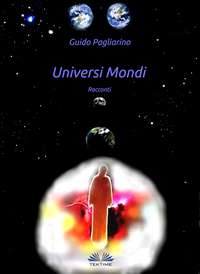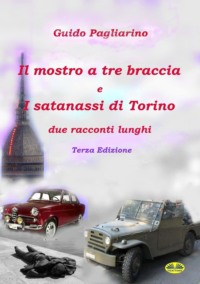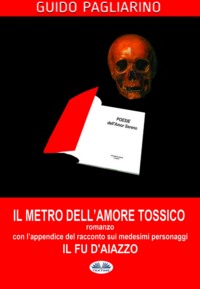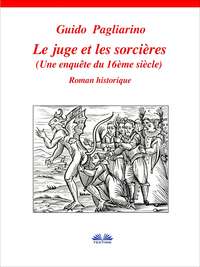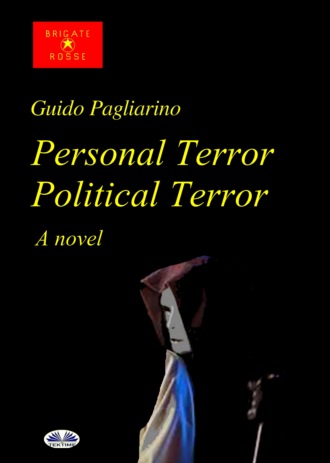
Полная версия
Personal Terror Political Terror
He had also told me, as we had agreed in case of any developments, to let Carla know so she could get an article out of it.
It had been published the following morning, on the front page. At Vittorio's request, the author had taken credit for the discovery at the Registry Office, because my friend had not wanted to appear in the media; he had told me on the phone: "It isn’t so much out of modesty that I don’t want to be named, but just to be prudent because I don’t want to find the monster in my house putting a hole in my skull with an ice pick, at my venerable age. " From his tone of voice I had guessed he was smiling.
Chapter 7
[From "La Gazzetta Libera"]
All the Ear Monster’s Victims
were warehouse workers. Coincidence?
-----------------------------------------------
Did the victims know each other?
Could their former colleagues also be at risk?
Carla Garibaldi
Sadly, we know there are now five victims of the Ear Monster, all killed with a sharp ice pick planted in the brain through the ear.
We recall that their names were Maria Capuò Tron, Giovanna Peritti Verdani, Margherita Piccozza Ferini, Alessandro Cipolla and Mosca Scrofagnocca.
While the identity and psychological profile of the killer unfortunately remain unknown, a new elementl emerged yesterday from our research in the archives of the Turin Registry Office. As Police Headquarters were already aware, all the victims as well as Peritti and Scrofagnocca had been warehouse workers for years. Capuò Tron had stopped working after her marriage, which was confirmed by comparisons with her successive identity cards, which show that she is a housewife. Ferini Piccozza, also according to the documents, had left work only several years after her marriage, perhaps because her husband, later a bank executive, was still at the beginning of his career and one salary would not have been enough. Cipolla had left the warehouse job only when he retired.
As for the other two victims, Scrofagnocca was still working at the time of her death, at a warehouse for bathroom fittings, while the widow Verdani, who had been retired for about a year at the time of her death, had left her job as a warehouse worker much earlier when she married a trader and had then worked with him.
Although it may only be a suspicion, we would like to ask the investigators some questions:
Having established that all the victims had been warehouse workers, had they worked in the same company at some time in their lives?
Was this company, for all five, the factory making shower doors, which closed down some time ago and where, as Police Headquarters are already aware, the widow Verdani and Scrofagnocca had worked?
If this is the common thread that the killer has followed, could other old co-workers of the victims be in danger? That seems to be a vital question.
With regard to the satanic matrix of crimes hypothesized by Deputy Police Commissioner Pumpo, could the same victims have had anything to do with that environment in any way, in the past? If so, would it be somehow linked to the company in which they worked? And in this case, could the owners not have been aware of it?
carlgari@gazzetta.it
Chapter 8
"I read your colleague's piece," Vittorio had said to me, "and I was a little perplexed."
"Why did she take credit for what was discovered at the Registry Office?"
"No, no, you know I told you myself to ask her to do that. I meant that, at the end of the article, she ventured a little too much: even if she doesn't express herself clearly, it almost seems as if she is insinuating that the owners of the company were demonists: she could get herself sued for moral damage, you know?"
"She’s not afraid of that, she’s insured like all journalists are, myself included: with our job, isn't hard to get yourself a lawsuit, you know?"
"Yes, but doing your best to get one..."
The Deputy Public Prosecutor of the Republic, Marcello Trentinotti, perhaps prompted by Carla's article, had urged Deputy Police Commissioner Pumpo, and he urged Sordi, to get hold of the results of the checks they’d started at the Employment Office as soon as possible. In the meantime, he had asked a registrar to gather all the data relating to the shower factory, Coniugi Corona & Figlio9 , from the archives of the Chamber of Commerce.
It turned out that not only two but all five of the victims had been employees of that company and, for some time, had worked together.
The company had been a family business that had ceased operations in the mid-1980s. Mother and son, Luigia and Attilio Corona, had been owners after their respective husband and father had died of a stroke in the late 1970s.
While the woman had been dead for some time, her son, a fifty-one-year-old man on a disability pension, an architect, had been tracked down and had been summoned to Prosecutor Trentinotti’s office, to be heard as a person of interest. The appointment had been scheduled for October 18 at 10 a.m.
Attilio Corona had arrived on time that morning.
A long conversation with Dr. Trentinotti had followed, recorded by a registrar.
Thanks to her contacts in Court, Carla had heard about the interview and another of her articles had appeared the following day.
Chapter 9
[From "La Gazzetta Libera"]
Did the Ear Monster
know his victims?
---------------------------------------------------
They had all worked in the same company
Carla Garibaldi
Investigators have verified and accepted the hypothesis that the Ear Monster had been on friendly terms with his future victims, when working at the same place. From the archives of the Employment Office it appears that the victims were warehouse workers at Coniugi Corona & Figlio s.n.c., a small family company that manufactured and distributed shower stall doors. It had ceased operations in 1985, due to the illness of the owners, a mother and son.
While it appears that the woman died some time ago her son, Attilio Corona, an architecture graduate not enrolled in the register of architects, has been summoned by Magistrate Dr Marcello Trentinotti to be heard as a person of interest, and he was interviewed yesterday morning.
Dr. Corona is a person of medium height with a slim physique. He arrived dressed in an elegant double-breasted brown suit and silk tie of the same color on a cream shirt, remnants of a well-to-do past, since he claimed to live very modestly, his only income the invalidity pension granted to him following a stroke at the beginning of 1985 not long before he retired from business, not yet forty years old. He seems, however, to have overcome that brain injury well.
He told the magistrate that after the stroke his mother had liquidated the compan; she was elderly at that point and had some memory problems, so was therefore unable to continue running the company by herself.
The architect pointed out that his mother had unfortunately mismanaged the closure of Corona and Son and for this reason the two of them had been left almost in poverty, she with the artisan pension and he with the modest invalid pension, and the studio apartment in which he still lives. He added that not long after the closure, the devastating Alzheimer's disease which must have already appeared at the time of the company's liquidation, had been revealed in all its severity. Fortunately, Corona had returned to fairly good health in the meantime and had been able to assist his mother until she died in 1987 from pneumonia that had become lethal due the woman's chronic brain disease despite prompt hospitalization.
Dr. Corona had shown to be very lucid throughout the conversation with the magistrate, and at his request had then recalled and described the figures of the Ear Monsters’ five victims, all his former employees in the raw materials or the sales warehouse. He basically stated that none of them were noted for their diligence. When asked specifically by Dr. Trentinotti, he replied that he did not know whether they had enemies inside the company, adding of his own initiative that they could have had some outside of it in the environment of the extreme right, since they had been communist militants, something he had realized at the time when he had overheard their conversations.
When asked by the magistrate whether he had perhaps become perplexed of late, knowing that someone was killing his former employees, he replied that he was not aware of it because he did not read newspapers for economic reasons, and did not own a television set, because he did not like television and in any case did not want to pay the licence fee. He explained, without hesitation, that since his mother died and, with her, her pension, he had been very poor, so he was careful about how he spent his money.
Unfortunately, according to rumors at the Court, it does not seem that Attilio Corona’s deposition will be useful to the investigation regarding the Monster.
carlgari@gazzetta.it
Конец ознакомительного фрагмента.
Текст предоставлен ООО «ЛитРес».
Прочитайте эту книгу целиком, купив полную легальную версию на ЛитРес.
Безопасно оплатить книгу можно банковской картой Visa, MasterCard, Maestro, со счета мобильного телефона, с платежного терминала, в салоне МТС или Связной, через PayPal, WebMoney, Яндекс.Деньги, QIWI Кошелек, бонусными картами или другим удобным Вам способом.



